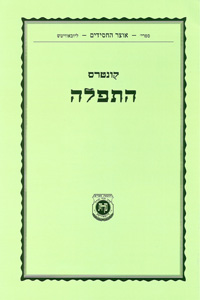The evil inclination agrees to everything but Avodas haTefillah!
The Previous Rebbe taught:
There is no justice in the claim of some young married chassidim that the time is not yet ripe for them to engage in the chassidic avodah of davenen.
One should realize that this claim is prompted by that smart little fellow (i.e., the evil inclination). He is willing to agree to everything -- that a chassid study nigleh, that he study Chassidus, that he do a fellow Jew a favor, that he be a maskil, or a scholar -- but not that he should engage in avodah.
“You are a liar,” he argues. “You are not really of the right standing. What makes you think you should already be engaging in avodah? That’s falsehood!”
To be sure, there are times when this argument may be true, painfully true. Nevertheless, one must answer the Evil Inclination: “Don’t speak of a blemish which you yourself have!”
Chassidim at large, temimim in particular, and especially ovdim, should seriously engage in the avodah of prayer. There’s certainly no lack of talk; there should be at least a bit of action.
http://www.sichosinenglish.org/books/likkutei-dibburim-4/04.htm
For the Yiddish original, see Likkutei Dibburim, Vol. 3, pp. 1033-1034.




